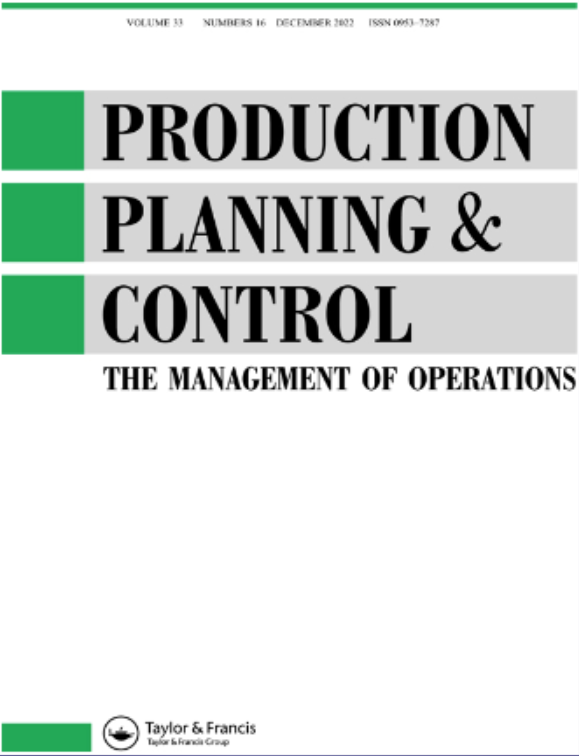智能供应链控制塔的实现:社会技术系统案例研究
IF 5.4
3区 管理学
Q1 ENGINEERING, INDUSTRIAL
引用次数: 9
摘要
尽管工业4.0技术层出不穷,但关于企业如何将其整合到供应链中的指导意见却很少。本研究考察了一家大型制造公司为创建智能供应链而实施的供应链(SC)控制塔(SCCT)。本研究将社会技术系统(STS)理论应用于工业4.0背景下的技术类型学(长链、中介、密集)。该公司遵循三个阶段的实施计划(I:启动,II:运行,III:持续改进),从外包供应链控制过渡到开发SCCT控制结构,然后创建智能SC资产和能力。研究表明,SCCT需要整合这三种技术类型来体现智能供应链。此外,它还表明,技术与SCCT团队、内部和外部供应链利益相关者的相互作用对于管理智能供应链的开发、实施和增长至关重要。它确定了过渡障碍,包括系统失调,社会技术集成不良,以及内部和外部供应链利益相关者之间的信任倒置。智能供应链是系统管理社会技术互动的结果。本文章由计算机程序翻译,如有差异,请以英文原文为准。
Implementation of an intelligent supply chain control tower: a socio-technical systems case study
Abstract Despite the proliferation of Industry 4.0 technologies, there is little guidance concerning how companies can integrate them in their supply chains. This study examines the implementation of a supply chain (SC) control tower (SCCT) by a large manufacturing company aiming to create an intelligent supply chain. This study applies Socio-Technical systems (STS) theory using the technology typology (long-linked, mediating, intensive) in the context of industry 4.0. The company followed a three-phase implementation plan (I: Initiation, II: Live, III: Continuous improvement) to transit from outsourcing supply chain control to developing the SCCT control structure and then creating intelligent SC assets and capabilities. The study shows that the SCCT needs to integrate all three technology types to reflect the intelligent supply chain. Further, it shows that the interactions of technologies with the SCCT team, internal and external supply chain stakeholders are critical in managing the development, implementation, and growth of intelligent supply chains. It identifies transition barriers including system misalignment, poor socio-technical integration, and an invert of trust between internal and external supply chain stakeholders. The intelligent supply chain emerges as a result of managing socio-technical interactions systematically.
求助全文
通过发布文献求助,成功后即可免费获取论文全文。
去求助
来源期刊

Production Planning & Control
管理科学-工程:工业
CiteScore
19.30
自引率
9.60%
发文量
72
审稿时长
6-12 weeks
期刊介绍:
Production Planning & Control is an international journal that focuses on research papers concerning operations management across industries. It emphasizes research originating from industrial needs that can provide guidance to managers and future researchers. Papers accepted by "Production Planning & Control" should address emerging industrial needs, clearly outlining the nature of the industrial problem. Any suitable research methods may be employed, and each paper should justify the method used. Case studies illustrating international significance are encouraged. Authors are encouraged to relate their work to existing knowledge in the field, particularly regarding its implications for management practice and future research agendas.
 求助内容:
求助内容: 应助结果提醒方式:
应助结果提醒方式:


